The confusion between learning a foreign language and studying a language major, along with the lack of clear career orientation, makes it difficult for many young people to determine their future.
An uncertain future
Even from high school, many students tend to choose English Language as a "safe" career option. Trinh Quoc Phong, a 12th-grade student in Tay Ninh , said: "I don't like engineering, and I'm not good at the A00 subjects (Mathematics, Physics, Chemistry), so I chose English Language because the admission score is within my reach. I heard people say that it's easy to find a job after studying English, so I feel reassured."
In reality, many students haven't distinguished between studying English and majoring in English Language. While English Language programs are highly academic, focusing on phonetics, syntax, culture, translation, etc., most students expect to learn practical communication skills for work. This mismatch leaves many students feeling disappointed upon entering university, leading to discouragement or choosing careers unrelated to their field.
Le Gia Han, a fourth-year student at the University of Social Sciences and Humanities (Vietnam National University Ho Chi Minh City), said that in her second year, she interned at a marketing company in a customer service position, earning about 2.5 million VND per month for 5 working days per week. However, her work was completely different from what she had studied. Han's main job was customer service, answering emails, and coordinating work between departments.
“Sometimes I translate some English-Vietnamese documents for customers, but actually the job has nothing to do with what I studied, it's completely different from my field. At first, I thought that as long as I knew English, I could do anything,” Han said.
For many freshmen, the reason for choosing a major sometimes stems from emotional factors. Vo Nguyen Hoang Lan, a first-year English Language student at the same university as Han, shared: “I like learning English and want to travel to many places, so I chose this major to make it easier for my future career, especially in fields like tourism or business. I used to tutor English, but I don't intend to pursue teaching long-term; I'm still uncertain about my future.”
Choices based on personal interests like Lan’s are quite common. However, without a clear understanding of the training program and career requirements, students can easily fall into a state of aimless learning, leading to graduation not being ready for work.

Learn the right way so you don't get lost.
Faced with the reality that many English language students are lost in their career direction, education experts believe that early orientation and creating an environment for practical experience are prerequisites to help students correctly recognize their own abilities and choose the right direction.
According to Ms. Nguyen Ngoc Nguyen, a lecturer in the Faculty of Foreign Languages at Van Lang University, the confusion among English Language students regarding their career paths is a consequence of choosing a major without sufficient research. “Most students choose English Language because they don’t know what to study, or simply because they like English. That’s not wrong, but if it’s just a matter of liking it without a career plan, it can easily lead to a lack of direction later on,” Ms. Nguyen said.
According to Ms. Nguyen, career orientation should begin in the first year. While students don't need to pinpoint their exact post-graduation career yet, they should have a general idea of the work environment they want to be in and the fields they can pursue, such as teaching, commerce, translation and interpretation, tourism, marketing, or international communication. "Knowing what you like isn't enough. You need to try things out, gain practical experience, and see if you're a good fit. That's the only way to determine your long-term career path," Ms. Nguyen said.
At Van Lang University, the English Language program is designed with an applied orientation, helping students quickly access various career fields. Students study a diverse range of modules such as business English, tourism English, teaching methods, translation and interpretation skills, etc. Starting from their fourth year, students participate in internships at businesses or work on integrated projects within their courses to gain practical experience.
However, Mr. Nguyen, M.Sc., believes that the school and lecturers are only companions. Effective learning still depends on the students' ability to explore and proactively seek out information. "We can provide tools and suggest paths, but students are the ones who decide which direction to take. If they are not proactive, they can easily become confused by the myriad of career choices available today," the lecturer emphasized.
Not only at university, but also for high school students, choosing an English major should be based on ability and clear direction. Ms. HM, director of an English language center in Dak Lak province, said that being good at English is an advantage, but it's also necessary to determine if one enjoys working with the language at an academic level, and whether they aspire to become a teacher, translator, or tour guide. If these questions cannot be answered, choosing a major simply because it sounds familiar can easily lead to mistakes later on.
“Students should take advantage of their first year to try out various activities such as teaching assistant positions at language centers, writing content in English, participating in small research groups… Each experience is a way for students to discover themselves. Students should also attend career seminars, workshops, or soft skills programs to gain more practical information about different career paths after graduation,” said Ms. M.
In fact, thorough counseling, participation in experiential activities, and conversations with professionals in the field are effective channels for students to gain a better understanding of their chosen industry. At many universities, the orientation week for first-year students is the starting point for that journey.
Over a few class sessions, first-year students will be introduced to their major, curriculum, regulations and policies, and participate in career orientation sessions shared by alumni and businesses. This is an opportunity for new students to gain a clearer understanding of the field, identify the necessary skills, and determine the career path that suits them best.
However, if career guidance is limited to just the first week, it can easily become a mere formality. Career support needs to be implemented throughout the entire training process, from the first semester to the final year, through academic activities, practical training, real-world networking, and even psychological support and soft skills development. When students receive proper guidance and learn from their mistakes early on, they will no longer be lost, even if their initial choice of major stemmed from pure interest.
“The Civic Education Week is an activity that helps newly admitted students to universities and colleges familiarize themselves with the higher education environment; enhance their awareness and sense of responsibility in the learning process; correctly implement the Party's guidelines and policies, the State's laws, and the school's regulations; gradually adapt to the new environment, strive to become good citizens, and contribute to the development of the community and society,” said Dr. Tran Thi Roi, lecturer at the Faculty of Basic Sciences, Ho Chi Minh City University of Law .
Source: https://giaoducthoidai.vn/loay-hoay-chon-nganh-chat-vat-xac-dinh-tuong-lai-post739306.html



![[Photo] The captivating scenery of the fragrant maple forest in Quang Tri](/_next/image?url=https%3A%2F%2Fvphoto.vietnam.vn%2Fthumb%2F1200x675%2Fvietnam%2Fresource%2FIMAGE%2F2025%2F12%2F10%2F1765353233198_lan09046-jpg.webp&w=3840&q=75)

![[Photo] Explore the US Navy's USS Robert Smalls warship](/_next/image?url=https%3A%2F%2Fvphoto.vietnam.vn%2Fthumb%2F1200x675%2Fvietnam%2Fresource%2FIMAGE%2F2025%2F12%2F10%2F1765341533272_11212121-8303-jpg.webp&w=3840&q=75)




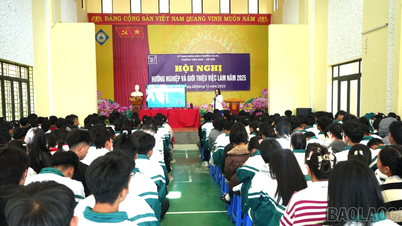





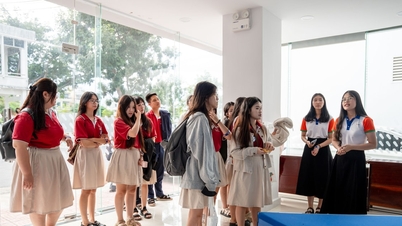



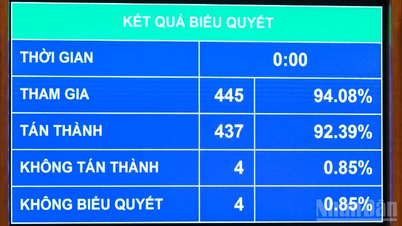



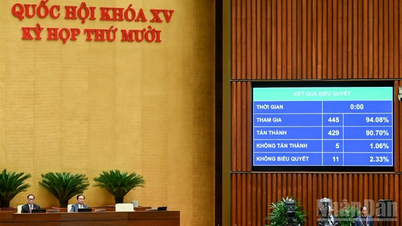




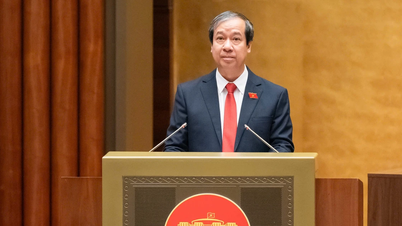





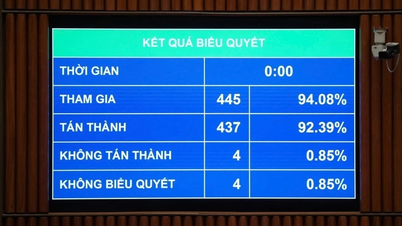



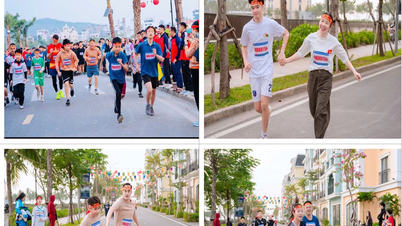





![[Video] The craft of making Dong Ho folk paintings has been inscribed by UNESCO on the List of Crafts in Need of Urgent Safeguarding.](https://vphoto.vietnam.vn/thumb/402x226/vietnam/resource/IMAGE/2025/12/10/1765350246533_tranh-dong-ho-734-jpg.webp)















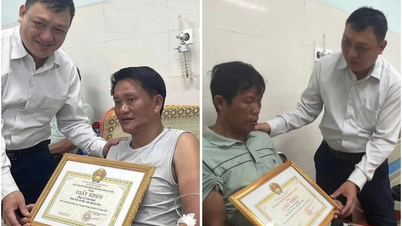


























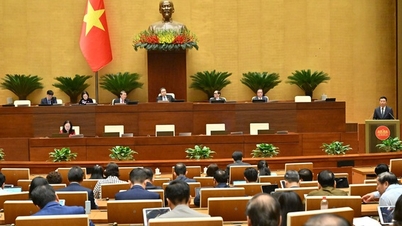






























Comment (0)